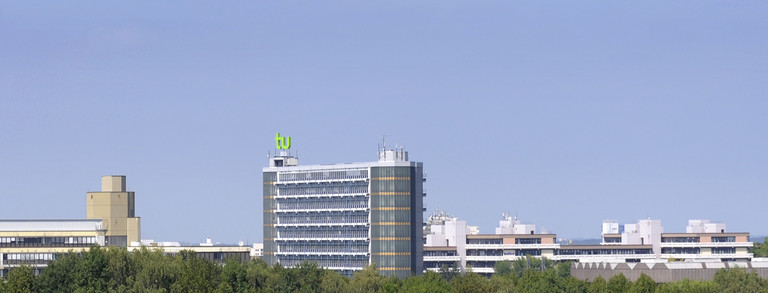Launch of the New Research Strategy
- Top News
- Research
- Campus & Culture

Around 150 members of TU Dortmund University attended the launch event at the end of November when the Rectorate presented the university’s new 2023-2027 Research Strategy to the university public. Professor Nele McElvany, Vice President Research, kicked off the extensive participatory process, which will run from January 2024 to June 2025: Stakeholders from research, teaching and administration as well as the student body are invited to help realize the objectives.
To create the best conditions for excellent research that builds on TU Dortmund University’s strengths, the Rectorate has developed a strategic framework. To this end, core objectives have been defined and published in a “living document”, together with potential measures and indicators that can be re-aligned on an ongoing basis.
“Research is a privilege,” said Professor Manfred Bayer, President of TU Dortmund University, at the well-attended launch event in the International Meeting Center (IBZ). “It is our social mission to cultivate and further develop science and knowledge transfer. Together and with this strategy, we are shaping the best possible framework for this.”
Not only scientists but also universities are national and international competitors when it comes to research: for the best minds, funding, ideas and innovative results, among other things. “With the help of a structured and strategically focused process, we can further develop research at our university and enhance its international visibility,” said Professor Nele McElvany, Vice President Research.
The Research Strategy encompasses six content-related and three institutional objectives:
Content-Related Objectives
- Objective 1: Strengthen excellent basic and application-oriented research, their systematic connection as well as interdisciplinary cooperation
- Objective 2: Attract, promote, and retain excellent established and emerging researchers
- Objective 3: Expand internationalization and diversity in research
- Objective 4: Enable and promote transfer
- Objective 5: Ensure research-based and -oriented teaching
- Objective 6: Further develop science communication
Institutional Objectives
- Objective 7: Further expand research infrastructures
- Objective 8: Strengthen quality management
- Objective 9: Provide systematic monitoring and evaluation on an ongoing basis
Shaping the best possible framework together
The launch event marked the start of a structured participatory process featuring various elements. First, the process is based on a survey among university teaching staff and feedback from administration. In addition, members of TU Dortmund University will discuss the objectives in working groups and develop suitable indicators, measures and detailed goals. From January 2024 onwards, there will be three phases, each with three workshop strands, which will each last six months and address the individual objectives.
- Phase 1: Excellent Research – Internationalization – Evaluation and Monitoring (January-June 2024)
- Phase 2: Attracting and Promoting Scientists – Research-Oriented Teaching – Research Infrastructures (July-December 2024)
- Phase 3: Diversity – Quality Management – Transfer and Science Communication (January-June 2025)
All the workshops will comprise participants from all the status groups at the university. In addition, the composition of the working groups is as diversified as possible and takes aspects such as departmental affiliation, gender, experience, and other criteria into consideration. Within the respective phase, the workshop members will discuss the interim results of the other two working groups as “critical friends” in a kind of peer review so that recommendations can be consolidated on the basis of this feedback.
All university members will be kept informed about the status of the participatory process via committees and events. In addition, there is an ongoing opportunity to provide feedback and obtain the latest update on the central Research Strategy website, which will also serve as a platform for the entire participatory process. Regular interim evaluations from the end of 2024 onwards will help to assess existing and newly introduced measures and indicators, and to re-align them if necessary.
The Research Strategy 2023-2027
Central Research Strategy Website
Contact for further queries:




![[Translate to English:] Partner Four hands are holding the green logo of TU Dortmund University](/storages/tu_website/_processed_/1/d/csm_Partner_Nicole_Rechmann_KW_40b35bb3fd.jpg)




![[Translate to English:] Forschung An apparatus with tubes in a laboratory](/storages/tu_website/_processed_/0/c/csm_Forschung_Juergen_Huhn_cbd34afd6d.jpg)
![[Translate to English:] Studium Five students are sitting in a lecture hall. They are talking to each other.](/storages/tu_website/_processed_/c/9/csm_Studium_FelixSchmale_81d94adc86.jpg)





